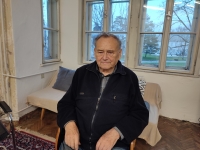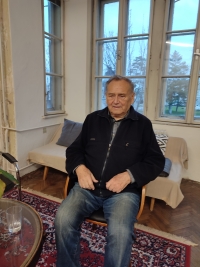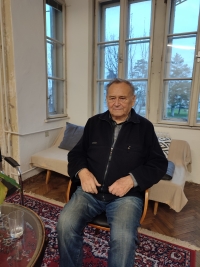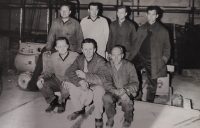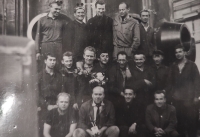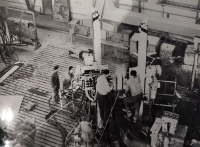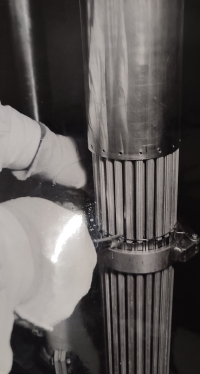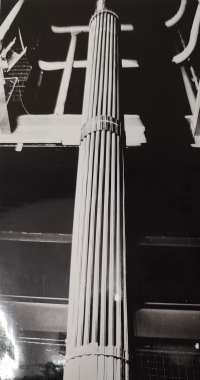When I joined Škoda as an assistant designer right after the war, I couldn’t even hold a pencil properly
Vladimír Pešek was born on February 20, 1940 in the West Bohemian metropolis of Pilsen. He spent his childhood and adolescence in the village of Horní Bělá, through which the Sudeten border ran during the existence of the Protectorate of Bohemia and Moravia. As a child, he was an eyewitness to the post-war displacement of the German minority from the Sudetenland area. In 1954 – 1958, he completed his secondary education at the Secondary Industrial School of Engineering in Pilsen. After successfully passing his school-leaving examination, he began working at the V. I. Lenin Works in Pilsen (ZVIL), known mainly as Škoda-Plzeň, as an assistant designer. In 1959, he temporarily left his job and began his compulsory military service in Aš as a member of the border guard. During his compulsory military service, he became a driver for military counterintelligence, for which he also provided photographic materials. Due to the outbreak of the Cold War, his service was later extended by another three months. In 1962, he rejoined the ZVIL and became a member of the work team that supervised the commissioning of the first 100-megawatt turbine in Czechoslovakia. He then began working in a new work section in nuclear research, thanks to which he found himself working at the Jaslovské Bohunice nuclear power plant several times. In 1964, he completed a foreign working trip to Italy as part of a special project, which included an excursion to the Garigliano and Latina nuclear power plants. A year later, he traveled repeatedly beyond the Iron Curtain thanks to the fact that, as the regional chairman of the Czechoslovak Youth Union, he became part of an exchange trip to France. In 1965, he married and settled in Piešťany. From 1965 to 1973, he worked at the Jaslovské Bohunice nuclear power plant, where he was awarded several times for his improvement proposals. From 1974, he began working at the Industrial Automation Plant (ZPA) in the pre-assembly control section. During his time at ZPA, he completed external postgraduate studies at the Czech Technical University in Prague, where he studied heat management. After the Velvet Revolution, he started his own business and founded a company that specialized in the installation of photovoltaic systems, solar collectors and heat pumps. He has been retired since 2000 and spends his leisure time in winemaking. He and his wife Vlasta have two sons – Miroslav and Branislav.
